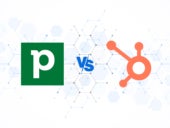
Big Data
Big Data8 Best Data Science Tools and Software
Apache Spark and Hadoop, Microsoft Power BI, Jupyter Notebook and Alteryx are among the top data science tools for finding business insights. Compare their features, pros and cons.

Apache Spark and Hadoop, Microsoft Power BI, Jupyter Notebook and Alteryx are among the top data science tools for finding business insights. Compare their features, pros and cons.

Europe's AI legislation, adopted March 13, attempts to strike a tricky balance between promoting innovation and protecting citizens' rights.

Tableau, TIBCO Data Science, IBM and Sisense are among the best software for predictive analytics. Explore their features, pricing, pros and cons to find the best option for your organization.

Tableau has three pricing tiers that cater to all kinds of data teams, with capabilities like accelerators and real-time analytics. And if Tableau doesn’t meet your needs, it has a few alternatives worth noting.

Amazon, IDrive, IBM, Google, NetApp and Wasabi offer some of the top enterprise data storage solutions. Explore their features and benefits, and find the right solution for your organization's needs.

Learn the top features offered in mobile CRM applications, plus how to use them, their benefits and which providers offer mobile apps.

Looking for the best construction CRM software for your business? Explore our top picks and find the right solution for your construction projects.

A CRM cycle is essential for businesses looking to effectively manage their customer relationships and drive growth. This process involves progressing through various stages to achieve success.

Microsoft Dynamics is great for businesses using the Microsoft platform or needing an on-premise CRM. Salesforce is more suited for companies looking for more advanced AI and automation tools.

Nearly 10 million devices were infected with data-stealing malware in 2023, with criminals stealing an average of 50.9 credentials per device.

CRM systems are suitable for businesses of all sizes. Pricing ranges widely, depending on several factors that need to be weighed before investing in a CRM platform.

Data migration is the process of transferring data from one system to another. Learn about the best practices, processes and tools for data migration.

Explore the top data migration tools to efficiently and securely transfer data to new systems or platforms. Find the best tool for your data migration needs.

Pipedrive is a sales-focused CRM that helps businesses manage their workflows through visual pipelines, while HubSpot is an all-in-one platform that aligns sales, marketing and service strategies.

Databricks, AWS and Google Cloud are among the top ETL tools for seamless data integration, featuring AI, real-time processing and visual mapping to enhance business intelligence.

Looking for the best CRM for startups? Check out our comprehensive guide. Compare features, pricing, and reviews to find the best CRM solution for you.

Looking to find the best AI CRM software? Explore top options, features and benefits to streamline your customer relationship management processes effectively.

Explore the capabilities of HubSpot CRM in our detailed review. Learn about the features, pricing, and pros and cons of this CRM software.

In this Zoho CRM and HubSpot comparison, cost per functionality and UI play a large part in how sales teams affordably scale their CRM efforts.

Find the perfect CRM for your small business in our detailed review. Explore features, pricing and more.